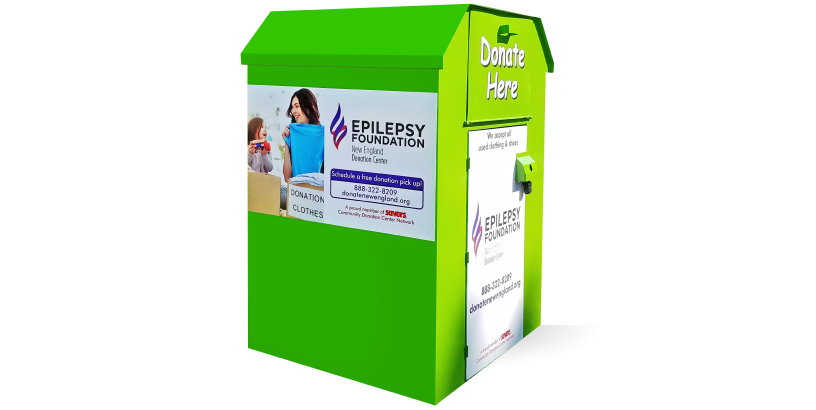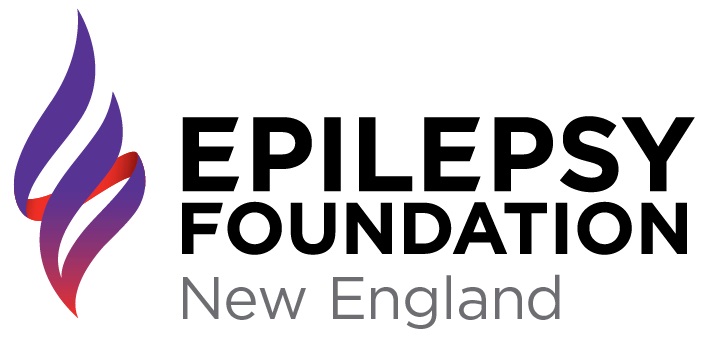About the Foundation
Epilepsy Foundation New England Organizational Summary 2023
Improving Quality of Life for People
Living with Epilepsy in New England
Established in 1983, Epilepsy Foundation New England (EFNE) is a 501 c 3 nonprofit organization whose mission is to help people and families affected by epilepsy in New England. EFNE is an independent affiliate of Epilepsy Foundation of America whose mission is to lead the fight to overcome the challenges of living with epilepsy and to accelerate therapies to stop seizures, find cures, and save lives. We serve the approximately 110,000 people in Maine, Massachusetts, New Hampshire, Rhode Island, and Vermont affected by epilepsy and the people who care for them. Our services are designed to provide Help for Today, Hope for Tomorrow.
A team of approximately 20 staff and 50 Community Health Workers work together to provide Youth Services, including summer camps, year round programs for elementary and middle school (Kids Connect), and young adults (Young Leaders Network), as well as a scholarship program; Resource and Support Services including Care Management, emergency financial aid, helpdesk, support groups, retreats, and our Remembrance Network for people who have lost someone to epilepsy; Community Education; Public Policy Advocacy; and Fundraising for Research.
The Foundation’s $4.2M operating budget is generated from diversified revenue streams including governmental grants (42%) with the CDC and AmeriCorps. Established in 2009, the EFNE Donation Center is an LLC of Epilepsy Foundation NE. Thanks to a partnership with Savers, the Donation Center collects clothing and household items that are resold through 14 regional thrift stores, generating 22% of our annual operating revenue. Galas, tournaments, and concerts generate 10% of our revenue; 7 walks and runs generate 8%. Other individual giving (e.g., online donations) provides 11% of our operating revenue. The Foundation’s endowment, established in 2017, is valued at $7M, and annual endowment spending contributes about 5% of annual operating expenses. Private grants contribute about 2% of our revenue.
Epilepsy Foundation NE is governed by a 20‐member volunteer Board of Directors. A 30‐member Professional Advisory Board provides strategy and advice to EFNE and act as Ambassadors for our mission. Western MA, Eastern MA, ME, NH, RI, and VT Councils provide leadership for the epilepsy community in their regions and ensure that EFNE is meeting the unique needs of people in diverse communities.
Care Management: EFNE partners with the world-class committed and caring epilepsy health care provider community in New England to offer services that support Quality of Life for people living with epilepsy. Developed in 2021, our Care Management model is a 1:1 relationship between EFNE representatives and our clients; it is a collaborative process that assesses, plans, implements, coordinates, monitors, and evaluates the options and services required to improve Quality of Life. Care Management relies on the ideals of Person-Centered Therapy: we build strong, trusting relationships with clients and link clients to community resources in a highly individualized approach. EFNE supports the identification and improvement of Social Determinants of Health in our clients with customized Care Management services, which are typically provided via virtual conferencing or telephone. Services may last from a few sessions to years, dependent on clients’ needs.
Epilepsy Resource Rooms: Launched in MA in August 2020 and now advancing in all 5 of the states we serve, Epilepsy Resource Rooms are staffed by a team of Community Health Workers (CHWs) in Training, who are giving a year of AmeriCorps service at EFNE. An Epilepsy Resource Room is an area in/near an Epilepsy Center or hospital or in a virtual space, staffed by 2+ CHWs, that provides one or more of the following: Care Management, basic patient/family education, community information and referral services, site‐based support programs (e.g., peer support group), socialization programs (e.g., youth group), a library of helpful literature, and assistance to hospital staff with site‐specific needs to improve support for their patients with epilepsy, such as helping patients prepare for telehealth appointments. Some clinics may have actual “rooms” whereas others have “virtual” (i.e., videoconferencing) rooms; some “rooms” may be an area in the waiting room; some “rooms” will be flexible spaces dependent on daily availability.
Camp Programs: Camp affords individuals with epilepsy a chance to have fun in an environment designed to build friendships and confidence. For families, it brings them together with others connected to epilepsy and provides an opportunity for new experiences with their loved one. Camps include a wide variety of offerings for ages and abilities. Program evaluation data shows that Purple Camps help participants have fun; try new things and succeed at taking challenges; have a better sense of self and his/her abilities; show respect for self, others, and community; build healthy relationships and demonstrate empathy; and build confidence.
Support Groups: The pandemic taught us valuable lessons about effective communication and connection through online support groups -and made support groups much more accessible to our large geographic region with large areas of limited public transportation. Today, EFNE offers 30-60 thematic groups per month. From “Cubbies” (a program for young children) to “Silver Warriors” (a group for older adults) groups develop and evolve to address client needs. In all groups, epilepsy is not a focus but a shared experience. Our Therapeutic Groups are led by trained professionals focused on change. Our Support Groups focus on coping strategies. And our Social Groups foster connection. In all groups members find unconditional support.
Community Health Worker (CHW) Certificate Program: CHWs provide preventative, promotive, and curative health services. The effectiveness of CHWs has garnered increasing recognition, as they can assist in mitigating disparities in healthcare accessibility. Launched in September 2022, EFNE’s yearlong CHW Certificate program offers a robust and immersive public health training and education program to prepare AmeriCorps members to support the health and well-being of individuals and communities. 100 hours of classroom instruction is coupled with up to 1,700 hours of supervised community-/hospital- based practice; participants receive a stipend of up to $22,500 for a year of training as well as an Educational Award of about $6,500 upon program completion. EFNE aims to teach transferable skills that encourage participants to pursue Public Health careers.
Advocacy and Public Policy: EFNE monitors legislation in the 5 states we serve. While individual pieces of legislation appear very targeted, each piece falls in line with our general advocacy priorities of (1) Ensuring access to quality health care that is affordable, physician-directed, and person-centered, (2) Ending epilepsy-related discrimination and protecting the rights of people with disabilities, (3) Raising awareness and promoting education about the epilepsies, (4) Promoting research, and (5) Providing opportunities for stakeholders involvement in advocacy. We ended the 2022 legislative session with two wins: Governor Baker signed into law the Massachusetts Step Therapy bill and in Maine, an Accumulator Adjustor bill passed.
Additional Program Highlights include:
Blue Skies Challenge: EFNE held our second annual Blue Skies Challenge in March 2023. Spurred to celebrate the advances developed by cutting edge academic institutions in New England, the Blue Skies Challenge is an annual Shark Tank like pitch contest for researchers in New England. $75,000 grants are awarded to two winners.
Emergency Financial Aid: Epilepsy can create a range of challenges for individuals and families that can result in short-term financial hardships. Paired with counseling services, EFNE offers short-term relief of up to $1,000 to help members in our epilepsy community in times of urgent need, such as preventing eviction.
Community Education: EFNE partners with Epilepsy Foundation of America to bring a range of educational programs to New England, especially Seizure First Aid Certification. EFNE partners with hospitals to host 5-8 patient education conferences a year.
Hope the Lion: Hope reminds everyone that where there is a person living with epilepsy, there is Hope. Lions represent courage, strength, and pride. Through Hope’s positive message of resilience, we are flipping the script on epilepsy. Hope isn’t just for kids! EFNE has designed Hope to relate to people of all ages and genders. A free plushy and other goodies are delivered to doorsteps, free of charge.

Support The Epilepsy Foundation
Your clothing, dishes, household items, toys, apparel and more make a big difference. We make donating easy with free, scheduled curbside pickups.
